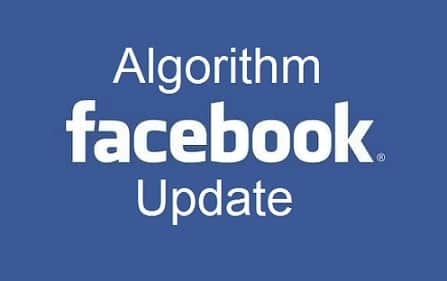
How Will Facebook’s Latest Algorithm Update Affect Marketers?
Facebook has decided – for better or worse – that posts from friends will be weighted more heavily in the News Feed than posts from third parties such as news publishers, brands, and others whose connections to the individual Facebook users are more tenuous.
The predictable reaction from publishers – whose survival increasingly depends on having their messages pass freely through Facebook – has been dismay, fear, and confusion.
As Farhad Manjoo wrote in the New York Times,
“Though it is couched in the anodyne language of a corporate news release, the document’s message should come as a shock to everyone in the media business. According to these values, Facebook has a single overriding purpose, and it isn’t news. Facebook is mainly for telling you what’s up with your friends and family.”
The social costs of Facebook’s decision may be extreme, warned Casey Newton, writing in The Verge (a publication that has suffered significant traffic loss as a result of Facebook’s prior news feed algorithm changes):
“My takeaway is that while Facebook is committed to users feeling informed, it’s not interested in whether they’re actually informed. The company asks people who get their news from Facebook whether they feel informed by stories, for example, but it does not quiz them to see what knowledge they have retained… the perfect News Feed ought to do more than give you a fuzzy sense of satisfaction that you are more “informed.” It should actually, measurably make you smarter about the world around you.
Of course, “making people smarter” isn’t Facebook’s job: its fiduciary responsibility is, after all, to its shareholders, and the fates of the publishers depending on referrer traffic isn’t a priority concern. If it were, it would haven’t reduced the reach of these publishers by 42% over the past 5 months.
But let’s get past the question – important as it may be – of the effect of this algorithm change on publishers and society at large.
Let’s discuss what it might mean for the fate of marketers using Facebook for commercial purposes.
What this means for marketers
Brands – like publishers – are on the losing side of this change.
Like publishers, they’ll either have to pay to have their messages get through, or manage to create new forms of content that friends of any given Facebook user are more likely to share. This might mean:
- Hyper-personalized content directed at the individual Facebook user – News organizations and brands have never created such content before, but with the application of the right kind of technology, they could.
- Interactive content that depends on sharing behavior for such content to be complete – An example would be an interactive poll or other item that one would be compelled to pass on, just like an old-fashioned chain letter.
- Content that includes a specific monetization incentive – For example, coupons or discounted offers “for those who click in the next five minutes.” Such content is expensive, however, if it’s employed at scale…
- “Like schemes” – Which, like “Link Schemes,” incentivize individual Facebook users to pass messages along in exchange for under-the-table compensation. Such schemes – necessary now because friends are the new message gatekeepers – likely violate Facebook’s TOS, and might even be illegal under existing FTC rules. But such impediments have never daunted marketers before.
Of course, nothing’s forever on Facebook, and its management could decide to back off on this decision if data (especially revenue and user interaction data) suggests that it’s having a negative impact on the kind of behavior that Facebook’s seeking to encourage.
But the larger question is whether the behavior that Facebook is trying to drive is good or bad for society at large, especially in its implicit assumption that Facebook users are better off viewing content that – while it might be “authentic” and even “intimate” because it comes from friends – discourages Facebook’s users from peering outside their algorithmically-mediated filter bubbles to seek out information that actually makes them more informed-citizens.
This question can’t be answered here, but it will surely be one under discussion as the full effects of this massive change begin to propagate outward, causing, among other things, a further reduction in reach for news publishers whose mission (hopefully) is to create more objective knowledge – not just subjective good feelings – in the world at large.
Source: Social Media Today

